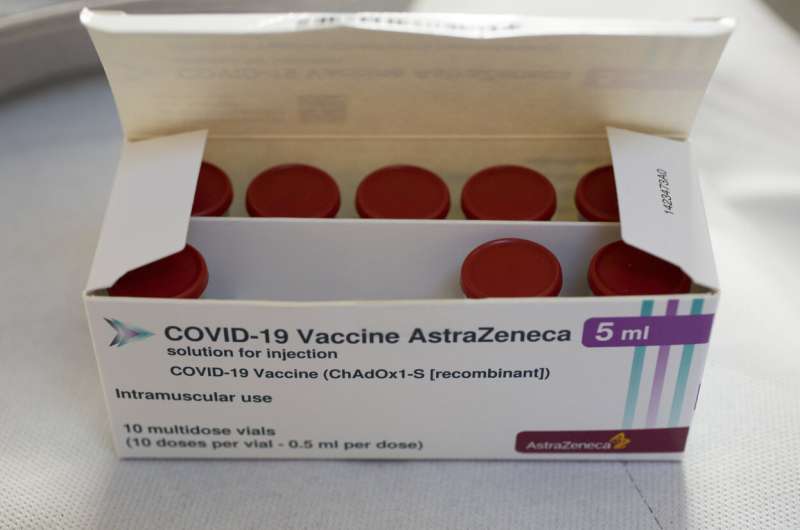
The European Medicines Agency said Friday that people who have received a first dose of AstraZeneca’s COVID-19 vaccine should get the second one too, despite the rare risk of blood clots that have been linked to the shot.
In new guidance, the EU drug regulator said people should continue to get the second AstraZeneca dose four to 12 weeks after their first shot.
The agency said there were “no or limited data to change current recommendations.” It said it wasn’t known whether the risk of a rare blood clot after a second dose might be different than that engendered by the first shot.
In its analysis of Europe-wide AstraZeneca data, the EMA also said there wasn’t enough information to know who might be more susceptible to the unusual clots.
Earlier this month, the Amsterdam-based drug regulator for the 27-nation European Union said there was a “possible link” between the AstraZeneca vaccine and rare blood clotting disorders, but that the benefits of getting the shots outweighed the risks.
The EMA previously described the clots as “very rare” side effects and said the vaccine labels should be modified so doctors and patients are aware of that.
It’s still unclear exactly how frequently the rare blood clots occur. According to data from the U.K., which has administered more AZ vaccines than any other country, there were 30 such cases among 18 million inoculations, as of late March.
Last month, more than a dozen countries, mostly in Europe, suspended their use of the AstraZeneca jab over the blood clot issue. Most restarted—some with age restrictions—after the EMA said countries should continue using the vaccine.
The agency this week identified a similar possible link between blood clots and the COVID-19 vaccine developed by Johnson & Johnson. As with the AstraZeneca product, the EMA recommended labeling changes but said the benefits of getting vaccinated outweighed the risks.
Both the AstraZeneca and J&J vaccines are made using similar technology, and it’s still unclear whether that might be partly responsible for the rare clotting disorders.
On Thursday, EU Health and Food Safety Commissioner Stella Kyriakides said she was expecting the EMA to issue guidance on whether people who received a first dose of the AstraZeneca vaccine should get a second dose, based on their sex or age.
To date, most of the rare clotting disorders have been reported in women aged under 60.
Although a research study began in the U.K. earlier this year to test whether it’s safe and effective to mix and match different vaccines, including those made by AstraZeneca and Pfizer-BioNTech, no results are yet available.
Some scientists say it’s too early to tell whether mixing vaccines is a wise strategy.
“We are at the limits of where science can give us reliable answers on that,” said Stephen Evans, a vaccines expert at the London School of Hygiene and Tropical Medicine. He said the data published so far on the AstraZeneca vaccine prove it is helping to stop COVID-19 and that there is no evidence suggesting it shouldn’t be used.
Source: Read Full Article
